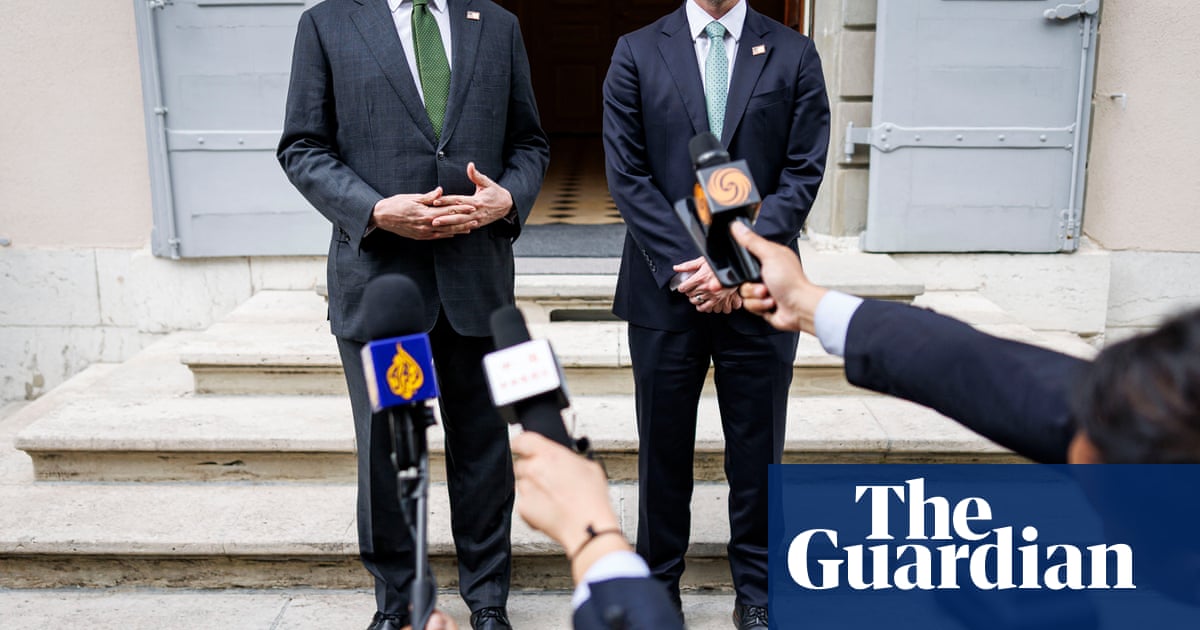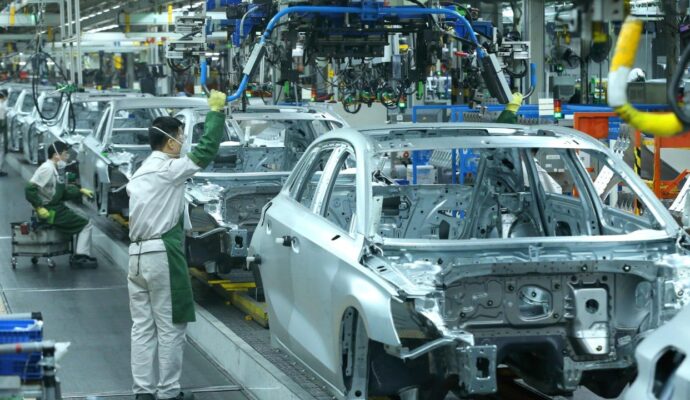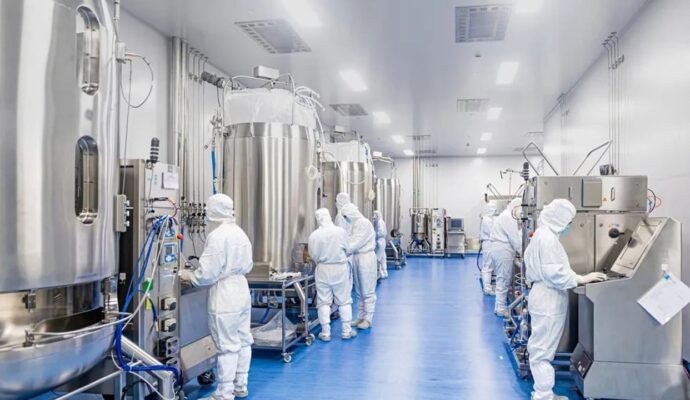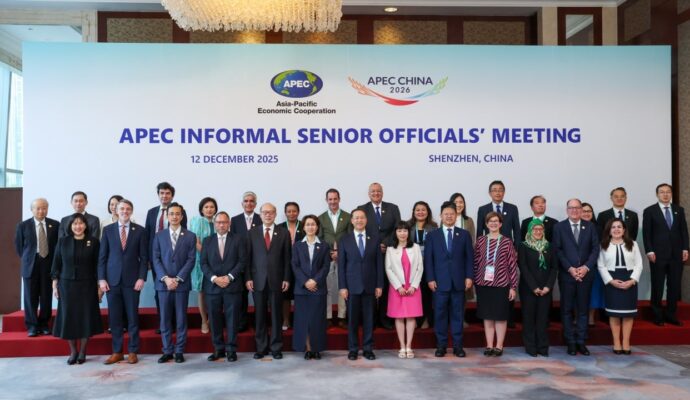
The White House announced on Sunday that a trade deal with China has been struck after two days of talks in Geneva.
The announcement, in a press release, comes after US treasury secretary Scott Bessent told reporters that there had been “substantial progress” in talks between his team and that of the Chinese vice-premier, He Lifeng, in Geneva on defusing the trade war between the world’s two largest economies sparked by Donald Trump’s 145% tariffs.
In remarks that were posted on social media by the White House, Bessent said he would give more details on Monday, “but I can tell you that the talks were productive”.
“I’m happy to report that we’ve made substantial progress between the United States and China in the very important trade talks,” Bessent told reporters.
The US trade representative, Jamieson Greer, who spoke alongside Bessent, suggested more strongly that a deal had been reached.
“It’s important to understand how quickly we were able to come to agreement, which reflects that perhaps the differences were not so large as maybe thought,” Greer said.
“Just remember why we’re here in the first place,” he added. “The United States has a massive $1.2 trillion trade deficit, so the President declared a national emergency and imposed tariffs, and we’re confident that the deal we struck with our Chinese partners will help us to resolve, work toward resolving that national emergency”.
Bessent said he had informed Trump of the progress of the talks.
The meeting was the first face-to-face interaction between Bessent, Greer and He since the world’s two largest economies imposed tariffs well above 100% on each other’s goods.
Although Bessent has said the bilateral tariffs were too high and needed to come down in a de-escalation move, he did not offer any details of reductions agreed and took no questions from reporters.
On Saturday night, Trump wrote on his social media platform that the two sides were working on “a total reset … in a friendly, but constructive, manner.”
“Many things discussed, much agreed to,” Trump posted. “We want to see, for the good of both China and the U.S., an opening up of China to American business. GREAT PROGRESS MADE!!!,” Trump added. Trump’s rhetoric, that China needs to be “opened” to US business seemed to ignore a half century of trade between the two nations since one of his political heroes, Richard Nixon, visited China in 1972.
The US commerce secretary, Howard Lutnick, confirmed to CNN that the US will continue to keep “a 10% baseline tariff to be in place for the foreseeable future” even on imports from nations the US strikes new trade deals with.
On Sunday, Kevin Hassett, the director of the National Economic Council, said: “What’s going to happen in all likelihood is that relationships are going to be rebooted. It looks like the Chinese are very very eager to play ball and renormalise things … they really want to rebuild a relationship that’s great for both of us.”
Last week, Trump and UK prime minister, Keir Starmer, announced a limited bilateral trade deal.
Hassett said the UK agreement provided a “really exciting blueprint” and that he had been briefed on 24 deals with other nations which are in the works. “They all look a little bit like the UK deal but each one is bespoke,” he said.
Meanwhile, Lutnick dismissed reports of dock workers and truckers losing their jobs as a result of the tariffs.
“This is just a China problem right now,” Lutnick said. “The rest of the world is 10% [tariffs]. So don’t overdo it.”
“Prices are going to stay stable once this policy is done,” Lutnick added.
Reuters contributed reporting


